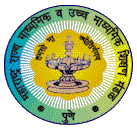Related Research Articles
In the education systems of Barbados, England, Jamaica, Northern Ireland, Trinidad and Tobago, Wales, and some other Commonwealth countries, sixth form represents the final two years of secondary education, ages 16 to 18. Pupils typically prepare for A-level or equivalent examinations like the International Baccalaureate or Cambridge Pre-U. In England, Northern Ireland, and Wales, the term Key Stage 5 has the same meaning. It only refers to academic education and not to vocational education.
Abitur, often shortened colloquially to Abi, is a qualification granted at the end of secondary education in Germany. It is conferred on students who pass their final exams at the end of ISCED 3, usually after twelve or thirteen years of schooling. In German, the term Abitur has roots in the archaic word Abiturium, which in turn was derived from the Latin abiturus.
The General Certificate of Education (GCE) is a subject-specific family of academic qualifications used in awarding bodies in England, Wales, Northern Ireland, Crown dependencies and a few Commonwealth countries. For some time, the Scottish education system has been different from those in the other countries of the United Kingdom.

Matriculation is the formal process of entering a university, or of becoming eligible to enter by fulfilling certain academic requirements such as a matriculation examination.
Secondary School Certificate (SSC), Secondary School Leaving Certificate (SSLC) or Matriculation examination, is a public examination in Bangladesh, India, Pakistan, Nepal and Maldives conducted by educational boards for the successful completion of the secondary education exam in these countries. Students of 10th grade/class ten can appear in these. It is equivalent to the year 10 of the GCSE in England or the first two years of high schools in United States.

Twelfth grade is the twelfth and final year of formal or compulsory education. It is typically the final year of secondary school and K–12 in most parts of the world. Students in twelfth grade are usually 16-18 years old. Some countries have a thirteenth grade, while other countries do not have a 12th grade/year at all.
In education, an entrance examination or admission examination is an examination that educational institutions conduct to select prospective students. It may be held at any stage of education, from primary to tertiary, even though it is typically held at tertiary stage.

The Maharashtra State Board of Secondary and Higher Secondary Education is a statutory and autonomous body established under the "Maharashtra Secondary Boards Act" 1965. Most important task of the board, among few others, is to conduct the SSC for 10th class and HSC for 12th class examinations. It is the most popular education board in terms of enrollment in high school in India only after the Central Board of Secondary Education.
A school leaving qualification is an academic qualification awarded for the completion of secondary education. Depending on the country or region, it may alternatively be known as a high school diploma, senior secondary leaving certificate, high schools general certificate or school certificate.

Education in Nepal has been modeled on the Indian system, which is in turn the legacy of the old British Raj. The National Examinations Board (NEB) supervises all standardized tests. The Ministry of Education is responsible for managing educational activities in Nepal. The National Center for Educational Development (NCED) is Nepal's teacher-training body.

The A-level is a subject-based qualification conferred as part of the General Certificate of Education, as well as a school leaving qualification offered by the educational bodies in the United Kingdom and the educational authorities of British Crown dependencies to students completing secondary or pre-university education. They were introduced in England and Wales in 1951 to replace the Higher School Certificate. The A-level permits students to have potential access to a chosen university they applied to with UCAS points. They could be accepted into it should they meet the requirements of the university.
The School Leaving Certificate, commonly abbreviated as SLC, is the final examination of Class 11 and Class 12, which is also known as the +2 course in Nepal. The +2 course is generally pursued after completing the Secondary Education Examination (SEE).
10+2 refers to the 2 years of schooling which is required post grade 10, adopted by high schools in Nepal. 10+2 is gradually replacing the conventional modes of intermediate education, being the Intermediate of Science, Intermediate of Commerce, Intermediate of Arts/Humanities normally taken by Students after having received their School Leaving Certificate (SLC) provided by Tribhuvan University. Students in Nepal either opt for a 10+2 course in the science, management, and humanities stream under the Higher Secondary Education Board (HSEB), or opt for other options like the British A-Levels curriculum under Cambridge University.

'National Examinations Board is the board that organizes the Higher Secondary examination and education in Nepal. It is transformed from previous Higher Secondary Education Board (HSEB) according to the Education Act of 2073 B.S. It is located in Sanothimi, Bhaktapur. The Board is the main body that organizes board exams, with the main aim of preparing skilled human resources for the development of the country.
Premier Secondary Boarding School is a boarding school in Rajbiraj, Nepal. The school was established in 1998. The founder of the school is Rajesh Karna. The school has around 500 students. It is one of the school who produces reasonable percentage of results in School Leaving Certificate exams. Abhishek Shrivastav from the school topped Saptari district in SLC 2072 BS and get awarded by PABSON. The school provides qualitative education to all the studying students.
The Junior Cycle is the first stage of the education programme for post-primary education within the Republic of Ireland. It is overseen by the Department of Education and the National Council for Curriculum and Assessment (NCCA), and its terminal examination, the Junior Certificate, by the State Examinations Commission.
The Singapore-Cambridge General Certificate of Education Normal Level examination is a national examination held annually in Singapore. It is taken after four years in the Normal (Academic) or Normal (Technical) stream. For subjects examined in English and foreign languages, the examining authority are the University of Cambridge Local Examinations Syndicate. For localised language subjects, the examining authority is the Ministry of Education (MOE).
Secondary Education Examination (SEE) is the final examination in the secondary school system of Nepal which is being taken by National Examination Board. National Examination Board upgraded from what was previously known as School Leaving Certificate (SLC).
References
- ↑ "Letter grading system: Implication and its impact in higher education" (PDF). Tribhuvan University . 22 February 2016. Archived from the original on June 24, 2016.
{{cite journal}}: CS1 maint: unfit URL (link)